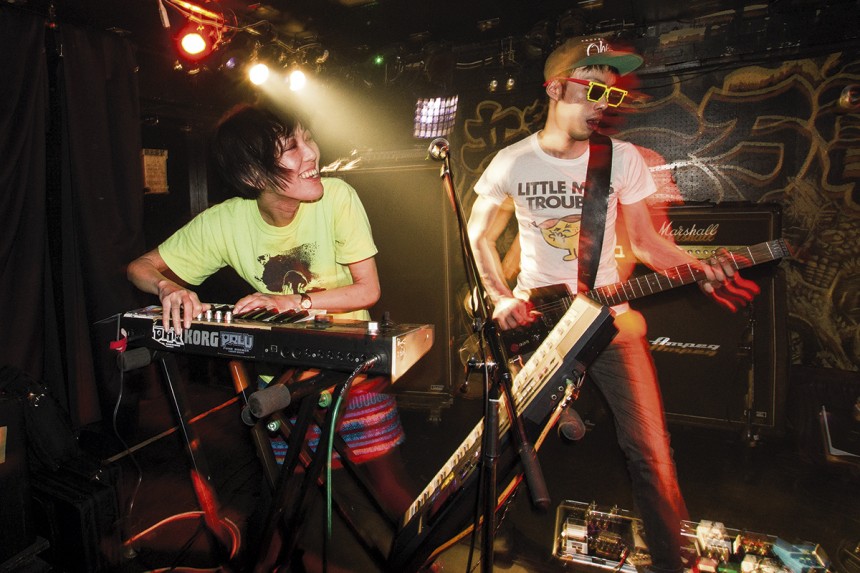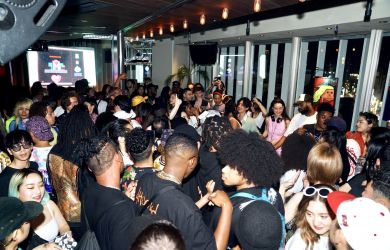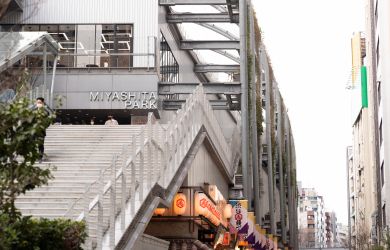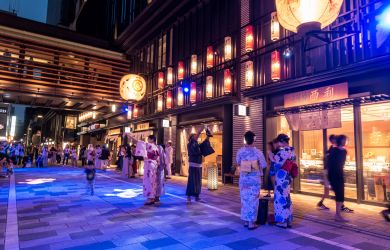
British expat Ian Martin began “stalking” Japanese rock bands a decade ago, and soon founded Call And Response Records with a mission to bring undiscovered music from the archipelago to a wider audience. Martin talks music with Metropolis.
How did you first come across Japanese rock?
Just from growing up in Britain in the ’90s with Shonen Knife, Cornelius remixing Blur, Melt Banana; that sort of thing. But the actual ground scene came through this band called The Students who I started stalking at their shows. Seeing their gigs at empty venues, I felt I had to put on my own gigs. After doing that for a year, it felt natural to start a label.
What do you hope to achieve through Call And Response Records, and why should people listen to the new albums by Futtachi and Jebiotto?
I just want to get the music I release out to the kinds of people who will like it. Looking at these releases’s contrasts helped clarify what links the music that appeals to me. I love music like Futtachi’s, that takes something avant-garde and draws you in; or Jebiotto’s, that takes something really pop and sabotages it. That tension between discord and harmony is the key. Making the audience work a bit [to like the music] is showing them respect, and they’ll appreciate the result more. [pullquote]Once musician and audience reach toward each other, there’s a “call and response.”[/pullquote]
What have you learned in a decade of running Call And Response?
You can’t please anyone all the time and you can’t please everyone any of the time. Whatever you do, things will go wrong. Find glimmers of light and cherish them.
You’re writing a history of Japanese rock: What are the most important differences between Japanese and Western rock?
There are broad differences between Japanese and Anglo-American pop in the number and sequencing of chords, the vocal delivery. The biggest difference, however, is the structure of the industry. In Japan, management companies have all the power, with the artists as salaried employees. Together with the labels, TV companies and advertising agencies, they make a sort of cartel. This makes the industry less prone to change. The structure that promotes popular music and the kinds of challenges facing talented artists trying to break in are where the big differences lie.
What are the biggest misconceptions about Japanese music?
The idea that Japanese music is just a “copy” of Western music is rubbish. Japanese rock and pop have had a lively domestic tradition since the ’60s, and the influence of overseas acts has shrunk to near-irrelevance by now.
Who do you tip to be the next Japanese act to go big internationally?
I think we’re going to see a lot of idol-style acts trying to reach overseas audiences—although trying to transfer a very Japanese promotional model to overseas markets that operate differently seems problematic. Frankly, there’s really no one in even semi-mainstream Japanese pop and rock that I think deserves overseas success.
20000V, Sep 27. See concert listings (popular) for details. http://callandresponse.jimdo.com
1. Hikashu Super, Hikashu (1981)
This album gathers a lot of the best tracks from the first couple of years of what is probably my favorite Japanese band ever. Hikashu represents one of the most original, trailblazing groups of the new wave era.
2. Atsureki,
Friction (1980)
Arguably the best Japanese punk album (though Meshi Kuuna by Inu runs close), Atsureki is effortlessly cool and fizzes with spiky energy.
3. Futurama, Supercar (2000)
Supercar was one of the bands that defined early 2000s Japanese rock, and while lots of people prefer their shoegazey 1998 debut Three Out Change, this album soundtracked my early years in Japan.
4. A Long Vacation, Eiichi Ohtaki (1981)
Happy End and Haruomi Hosono are pretty much the godfathers of all modern Japanese rock. But it’s Ohtaki who I think made the greatest single contribution with this gorgeous, Beach Boys-influenced, multilayered pop masterpiece.
5. Sashitai,
Hyacca (2007)
In 2006, my life was a mess and I took a trip to Fukuoka to get away from it all. I got drunk with some musicians there and woke up the next day with this plain white demo CD in my pocket, containing the most perfect postpunk/pop/noise ever. So I tracked down the band, offered to release it and never looked back.





